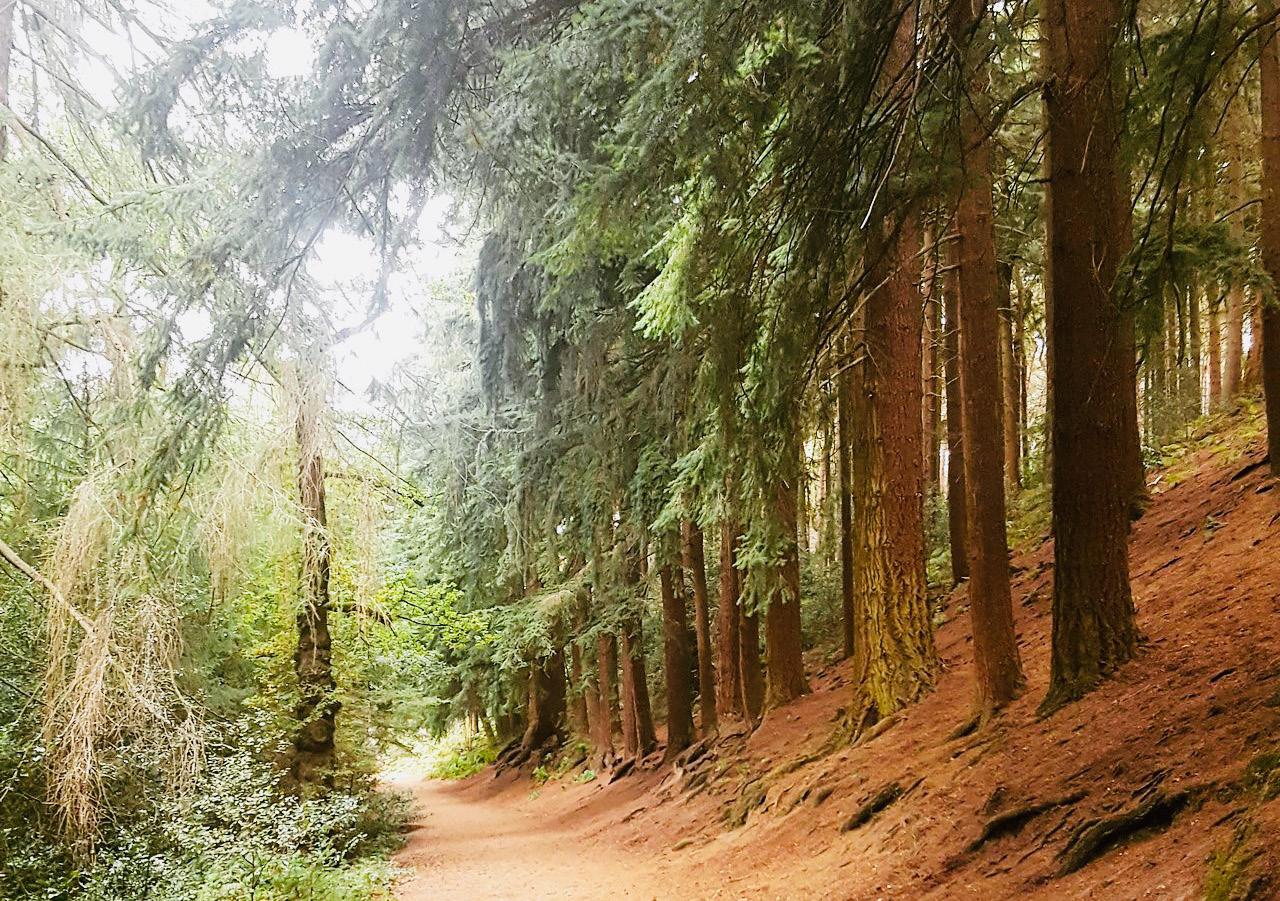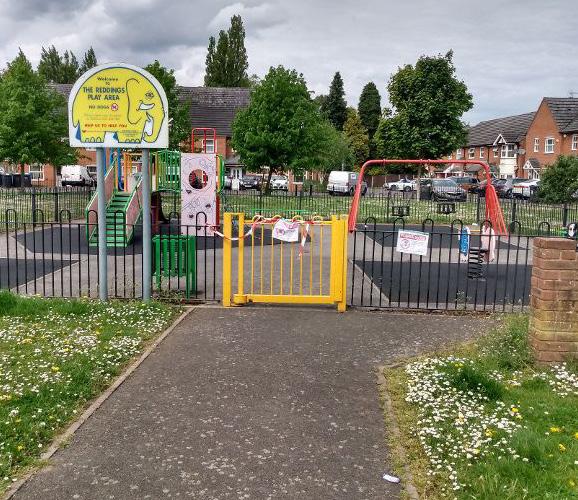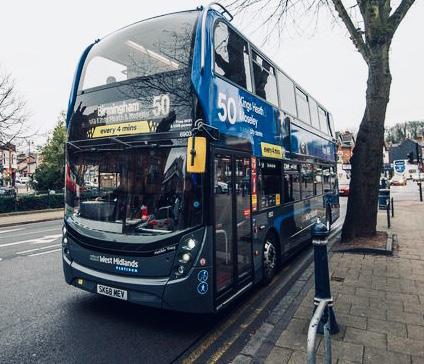
7 minute read
POETRY AND PROSE
HOPE AND RESILIENCE: POETRY AND PROSE
“Hope” is the thing with feathers - / That perches in the soul - / And sings the tune without the words - / And never stops – at all...
Advertisement
Emily Dickinson
Emily Dickinson's poem likens the concept of hope to a bird perched on the soul, forever singing inside us even when we are facing the darkest of times. Poetry and prose offer creative ways to deal with fear and uncertainty, and over the next six-pages we gather together different aspects of the process...
MOSELEY CALLING It's Bohemian lights they called me –To the cafés, CND and the Arts. From outer Kings Norton it hauled me –To a bedsit, a bike and false starts. I dreamt of red radical wine, And learning to play the viola. Of going to gigs, despising the pigs, And thinking intently of Zola. I wanted to be committed –Protest, debate and relate. So I picked up the gist, and a banner, And scanned the front line for a mate. Now Gregory seemed very 'active' –Alert, well-informed and keen, But when he said he was in NVDA –I dismissed him as being unclean. I yearned for dramatic expression –This 'piece' only needing a chance –So shouting “No Nukes" for the last time, I declared I could Act, Sing and Dance! On the boards Rodney's stagecraft was vital, And yearn for good parts as I might –Off-stage John and Phil felt his presence. Finale – Upstaged – Exit Right. So through Moseley's streets I meander, Stripped socks and hair desperately green. I think of becoming a vegan. Then think about what that would mean. Meet my mates at the check-out at Tesco, Take tea, a chat and a bun. We thrash out this world's recession. Then titter – then laugh and have fun. Moseley is tawdry, Moseley is sad. Moseley is bawdy, Moseley is mad. Moseley's aspiring, Moseley's a dive. Moseley is bijou, BUT, Moseley's ALIVE !! Susan Phillips
I must go down to the woods again, The lonely woods and the sky. And all I ask is a clear space to avoid the passersby. As a 'keep away' and a 'stay safe' song resonates in our ears With a white mask on my hairy face, To banish all my fears.
I must go down to the woods again, For the call of the big outside is a wild call and a clear call that cannot be denied. And all I ask is for fresh clean air with sounds of countless birds singing And the woodland way winding to where bluebells are nodding.

I must go down to the woods again, to waken up my life To the new way, the two metre way, to remove all my strife And all I ask is to stay safe, to be free from worry and fear, To know that though life has changed forever, a slower way, a better way is here.
David Isgrove (Based on John Masefield's Sea Fever and inspired by a walk on the Lickey Hills)
FEAR AND ANXIETY
DURING LOCKDOWN I passed by the playground yesterday The swings were there Empty My unborn child was there A lily, a rose or a simple jasmine My unborn child wasn't there But guess what I was there I wish you were there.

I had this dream But was it? It was lucid, plausible Reality and dreams blend into one No boundaries, no limits Where was I? In my dream or in reality?
CITY'S EDGE

You’re upstairs on the No. 50 bus in Kings Heath High Street. The traffic always clogs here, as people flock to shops supplied by juggernauts with goods funnelled in from around the world: money pours into the tills. If time froze on the bus, yet the buildings all around it vanished, taking you back a couple of centuries, you’d see how the land falls gently to the west towards a little river they call the Rea. Over your right shoulder is the brook that sculpted Highbury Park running down towards the river. To the east – your left – instead of the redbrick Methodist church at the top of Cambridge Road, you might spot the source of Coldbath Brook, which falls through Moseley Bog to Sarehole millpool and the River Cole – places where Tolkien and his brother played as children when their rented house, three miles from the centre, stood at the edge of the rapidly growing city.
This ancient track (now the A435) became a turnpike road in the 18th century, a toll road, connecting Worcestershire farms to the small but growing town of Birmingham to the north. You see the heathland on either side that isn’t worth cultivating. Time outside the bus moves forward. The road improves, and fields appear around you as [market] demand in Birmingham swells. The railway cuts deeply through the land in 1840; new buildings appear along what has become a high street; the suburb’s population explodes as Birmingham expands – the city swallows Kings Heath whole in 1911.
The bus stops at a crossroads in a hollow. The only stream you can see here now is made up of half-ton chunks of metal and plastic purring at the traffic lights, belching invisible soot, carbon and nitrous oxides, drinking petroleum and gulping oxygen. The lights turn green. It’s late spring: even the tallest of the street trees are in full leaf. You’re in the northern part of Shakespeare’s Arden Forest, which in his time was a patchwork of woods and ploughland and pasture and unruly hedges stretching to Stratford. Trees have been cleared in the centuries since to grow grain and cattle, to provide firewood for the hearth, to make charcoal to smelt iron, to build tea clippers and Nelson’s navy, to accommodate hedgerow-hating tractors, and to make way for acre after acre of houses, shops and factories, schools, hospitals and churches. You’re glad of your front seat. The leaves brushing the glass lift your spirits. Soon, a steep hill down to a canal. You see the sports centre on your left, but not the little wood tucked behind it. You don’t notice the Chinn Brook alongside the canal at the bottom of the valley: it runs into the Cole by Trittiford Pool, where the mill had four stones for grinding corn in 1783. You don’t realise that on your right the Chinn now boasts a tiny local nature reserve (they call it Jasmin Fields, but much of it is dense scrubby woodland). The bus climbs up the other side. Onto the Maypole, a whirligig of traffic connecting the city to the motorway beyond. You turn sharp right. A dozen thirteen-storey blocks rise around you, surrounded by prefabricated terraced houses. Slum clearances in the 1960s spawned estates of council housing on the city circumference, wherever land was cheap. When the bus drops downhill and stops in the valley bottom you look left and notice a line of trees leading to a row of prefabs. You guess the trees grew by a stream, which now runs underground. You alight and follow them. A sign by a footpath: Walkers Heath Park. You enter. Here’s the stream, not much bigger than a ditch, but graced with trees and rocky interruptions – when you look at a map at home you’ll find out this is Chinn Brook, and follow its course with your finger to the River Cole. You’re surprised how big the park is as you wander round broad mown paths cut through long grass. The hedges are filled with hawthorn flower and blossoming rowan trees abound: two shades of glorious white in the late May evening sunshine which has finally emerged from the clouds to welcome you. Over the stream, up a bridleway; a hayfield on your left, a grazed field on your right. Are you still in Birmingham? Perhaps you’ve crossed the border into Worcestershire. Back to the stream to seek its source. Along a track, across a narrow road, into some very rough pasture. You scramble down to the stream itself and find a muddy path. Soon, you’re blocked by barbed wire. Back through the park, past ball courts, playground and allotments to another bus stop. From the top deck, you notice more partly wooded open space on the other side of the road, surrounded by what you guess is social housing. In a few weeks you’ll return, following the brook downstream in that direction, and find clumps of mixed native woodland; a surprising line of pines on the brook’s bank; the torso of a rusty burnt-out motorbike asking to be photographed: an accidental work of art. Then unmanicured scrubland will lead to a canal – must be the same one the bus crossed over – and you’ll see the stream tunnel under it. It’ll be drizzling, none too warm. You’ll feel like an explorer, absurdly pleased to find this place, to belong to this city of surprises. Chris Fewings










